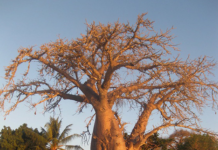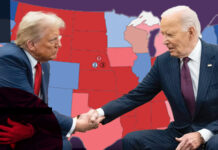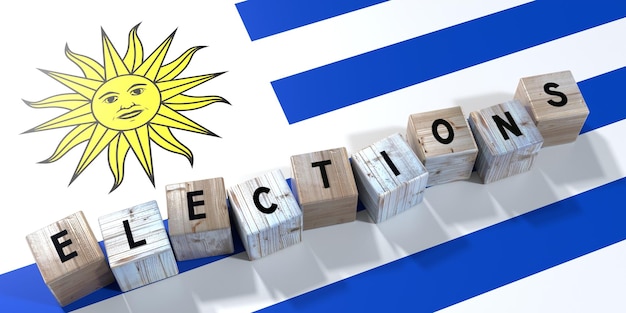
There were no surprises in Uruguay’s presidential elections held on October 27: there will be a runoff on November 24 to choose the new president who will replace Luis Lacalle Pou (National or Blanco Party).
The leftist Broad Front, with Yamandú Orsi and Carolina Cosse, was the most voted ticket, receiving 43.94% of the votes, far surpassing the right-wing ruling party: the National Party, led by candidate Álvaro Delgado with Valeria Ripoll as vice-presidential candidate, obtained 26.77%, leaving a 17-point gap.

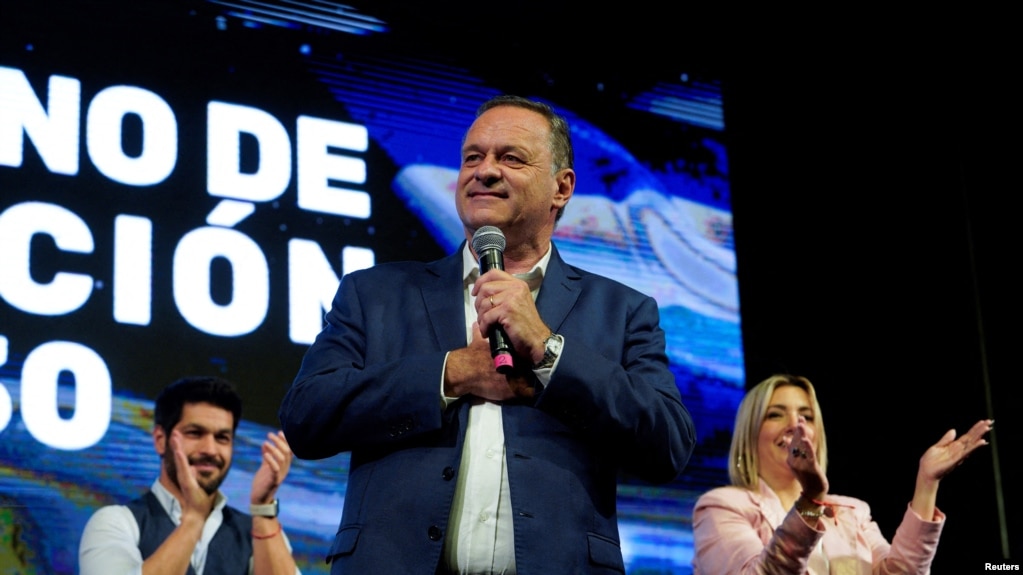
Is that a large margin? Yes, but not enough to win in the first round, which requires 50% plus one of the votes. In third place was the Colorado Party—with Andrés Ojeda Spitz and Robert Silva—gaining 16.03% of the votes. The issue is that, as the National (Blanco) and Colorado parties are allies in the current government, they are expected to join forces in the runoff; in Uruguay, this coalition is often described as a “radish: red on the outside, white on the inside.” Will the next president be from the left or a right-wing “radish”?
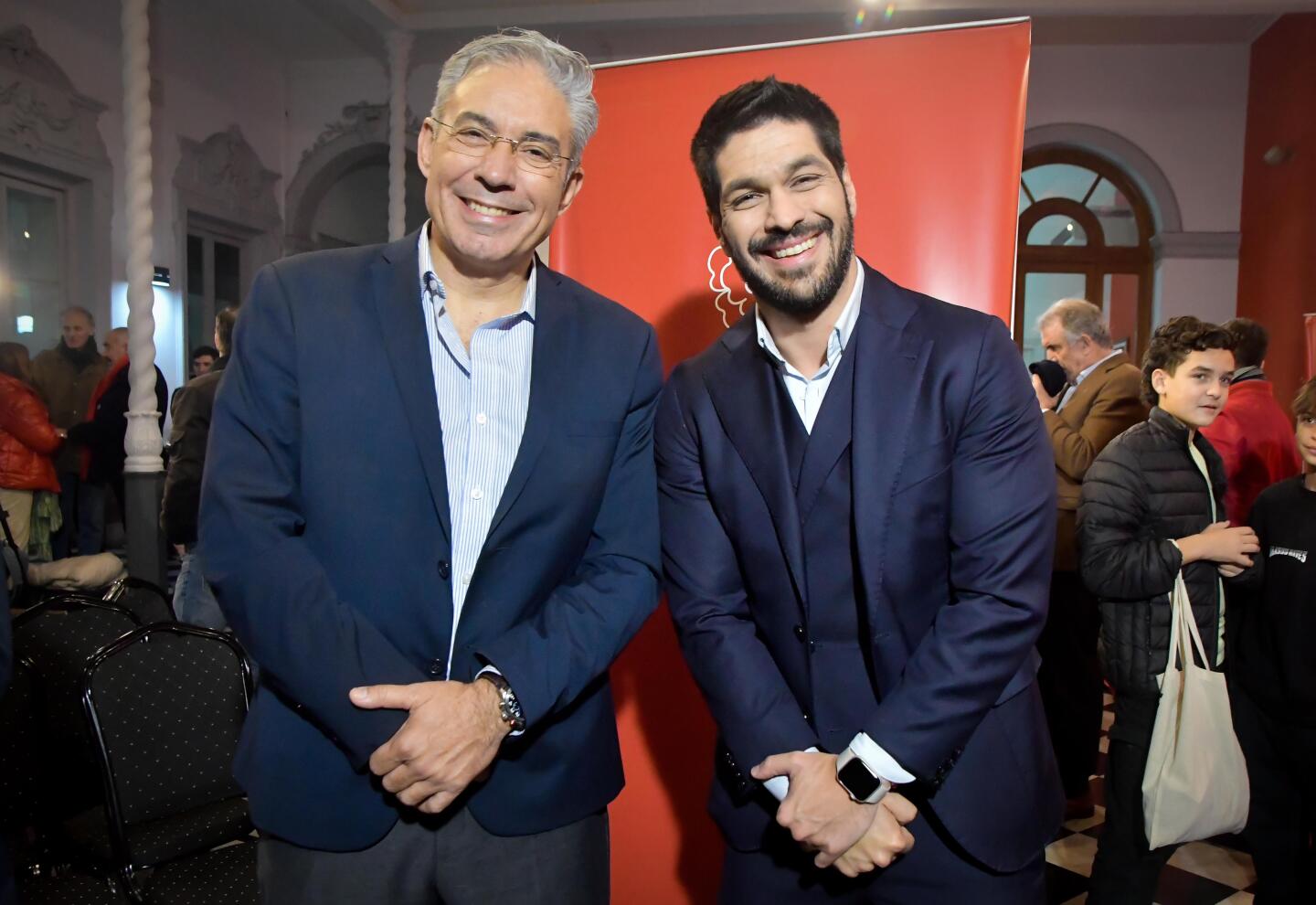
Yamandú Orsi is confident that the future belongs to the Broad Front: “It is a time for change, for hope. Today, the Uruguayan people have won. Today, hope prevails, and you are here to prove it. A time is coming when coming together is essential. The unity of Uruguayans is indispensable. Let’s double down. We’re close. We will succeed. Thank you.”
In contrast, Álvaro Delgado aims to keep power on the right. He highlighted that the ruling coalition was “the most voted political project,” as he counts on the support of all the parties within Lacalle Pou’s government. “Let’s continue on this path,” he stated.
On Sunday, the 27th, 2,766,000 Uruguayans were called to the polls, of which 2,441,238 turned out to fulfill their electoral duty. Voting is mandatory, but citizens living abroad are not allowed to vote at embassies.
The right-wing parties have never permitted this, as the vast majority of Uruguayans who left the country are Broad Front supporters. And they’re not few; they almost equal the number of those living within Uruguay. If all of them could vote, the right-wing parties would stand no chance. For November 24, it’s expected that even more Uruguayans living in neighboring countries, especially in Argentina, will travel to cast their vote.
The right wing will try to repeat what happened at the end of 2019, when they united to win by a narrow 1.3% margin over the then Broad Front candidate, Daniel Martínez. Although that time the left entered the runoff with 40%, and now they’re starting with almost four points more, which their supporters hope will be decisive. If all the parties allied with Lacalle Pou—including the smaller ones—combine their votes, the right would mathematically win: 47.38% versus 43.94%. But this is politics, not mathematics; it’s not an exact science. The outcome will be very close.
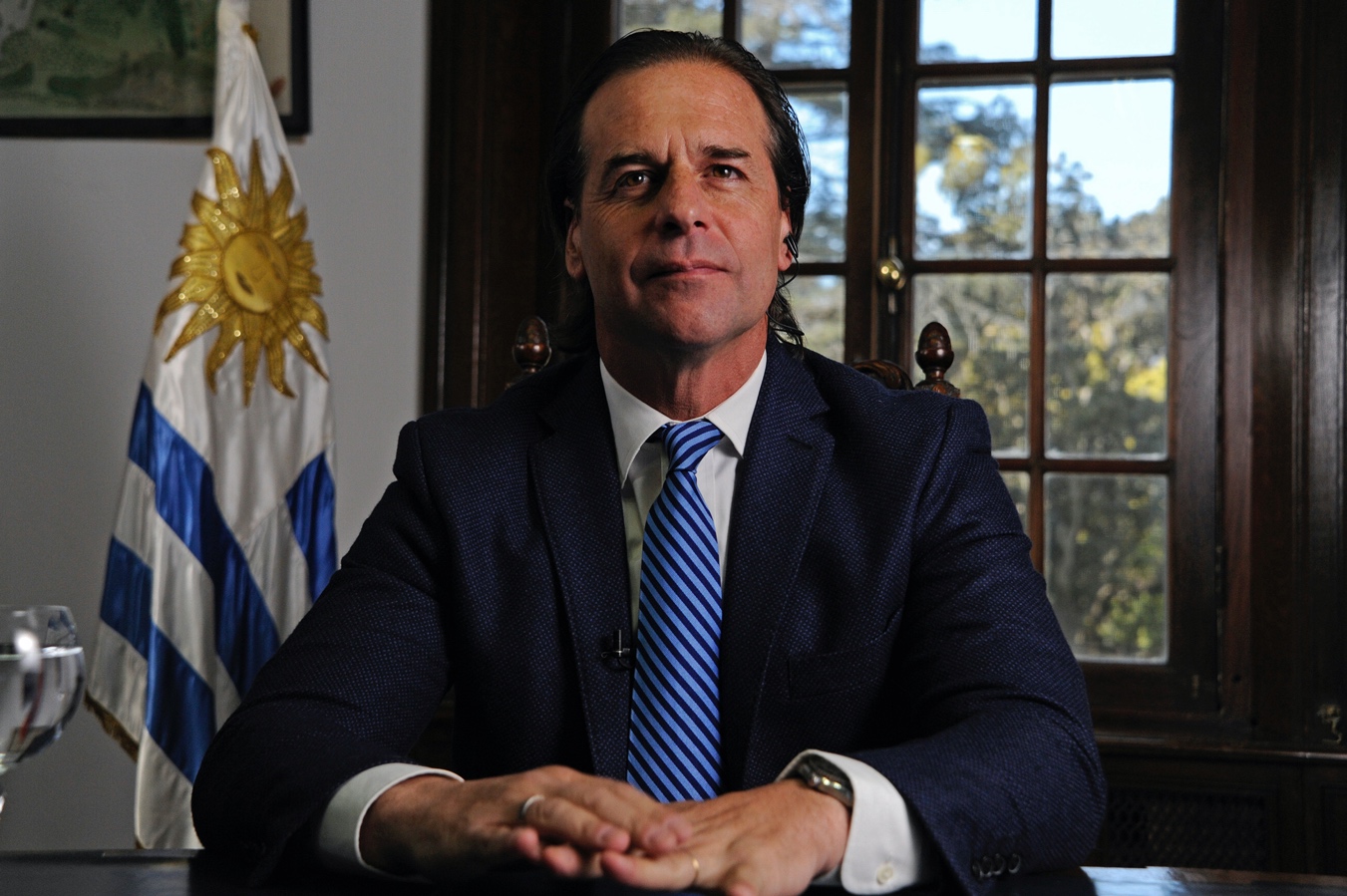
This is how the successor to right-wing President Luis Lacalle Pou will be decided. Since 2020, he has governed with his National Party at the head of a coalition of five parties: the Colorado Party (a historic “State party” in the 20th century), Cabildo Abierto (an old military right akin to Jair Bolsonaro’s style in Brazil, now gaining 2.45%), the small Independent Party (which achieved 1.71%), and another that has nearly faded, “De la Gente.”
In Uruguay, consecutive reelection is not an option, which is why Lacalle Pou cannot run as a candidate. His party, the National or Blanco Party, is one of the country’s traditional parties, historically more economically liberal, with roots in opposing the Colorado Party. Today’s ally, the Colorado Party, was originally social democratic and “founded the state in Uruguay” during the 20th century. Both were rivals for decades, but in the 21st century, what unites them is their “anti-Broad Front” stance (they are the right-wing “radishes”).
The Broad Front (FA) was founded in 1971, bringing together a variety of parties: from social democratic and Christian democratic center-left to the left-wing ex-Tupamaro guerrilla movement and Marxist left. Despite these differences, they have developed a common identity: they are “Broad Frontists.”
Since 1999, they have been the leading political force in every national election, governing for 15 consecutive years with Tabaré Vázquez (2005-2010 and 2015-2020) and José Mujica (2010-2015) as presidents. In 1999 and 2019, they won the first round but couldn’t avoid the runoff, which they lost. This time, they’re once again the country’s largest minority, close to half: could they succeed?
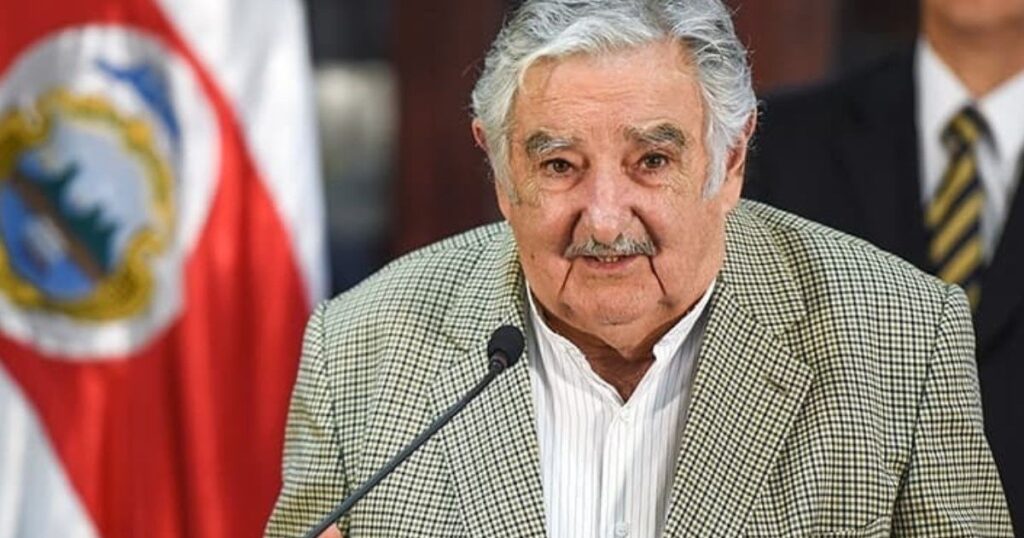
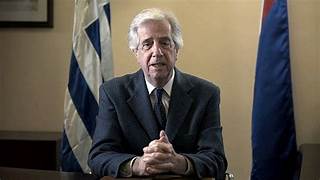
Alongside the national elections, there were two popular referendums, in which voting was not mandatory, and neither reached the 50% threshold for approval, both only reaching 40% and thus being rejected. One proposed a constitutional reform to allow nighttime police raids, driven by the ruling National Party; the other aimed to implement several reforms to the social security system and raise the retirement age to 60, which was more aligned with the Broad Front.
Balotaje: The Key Issues of the Electoral Campaign
The primary concern for Uruguayans is insecurity, followed by economic issues and employment. Corruption, lack of transparency, inequality rates, and child poverty are among the main concerns raised by the progressive Broad Front (Frente Amplio – FA).
The ruling Blanco party candidate, Álvaro Delgado, proposes classic neoliberal reforms: social security reform (via referendum), educational reform, and reducing the size of the state apparatus. Delgado claims he aims to build “a second level of transformations in the country to achieve a leap in competitiveness.” He concluded, “We can be the first developed country in Latin America.” The central points of his electoral platform for a “more global Uruguay” include improvements in infrastructure, well-being, knowledge, and the creation of “a simpler state.”
The ruling party takes pride in Uruguay’s post-pandemic economic recovery. After a 7.4% GDP drop in 2020, the economy experienced recovery first and growth later, with 5.6% in 2021 and 4.7% in 2022. However, in 2023, GDP growth nearly stagnated, rising by only 0.4%. The World Bank projects 3.2% growth for this year.
Nevertheless, the economic recovery did not benefit everyone equally. Although the 2021 GDP level was already higher than in 2019, the distribution of this growth was uneven, and inequality indicators show social deterioration. According to the Institute of Economics at the University of the Republic (IECON), “Household incomes in 2023 were, on average, 1.6% lower than in 2019. Households with the lowest incomes were the worst off in the comparison. On the other hand, the richest 5% of the population was the only group to significantly increase their income. If this 5% is excluded, the average income decrease for the remaining 95% of the population was even greater (2.6%).”
For Verónica González, an FA activist, “There has been a regression in labor rights, changes in the rules for collective bargaining, and delays in social security reforms, including raising the retirement age. In addition, child poverty has increased, and insecurity is out of control.”
Corruption also became a major political issue during Lacalle Pou’s government. An expedited passport granted to drug trafficker Sebastián Marset, who was imprisoned in the United Arab Emirates, led to the resignations of two ministers: Foreign Minister Francisco Bustillo and Interior Minister Luis Alberto Heber, as well as other lower-ranking officials.
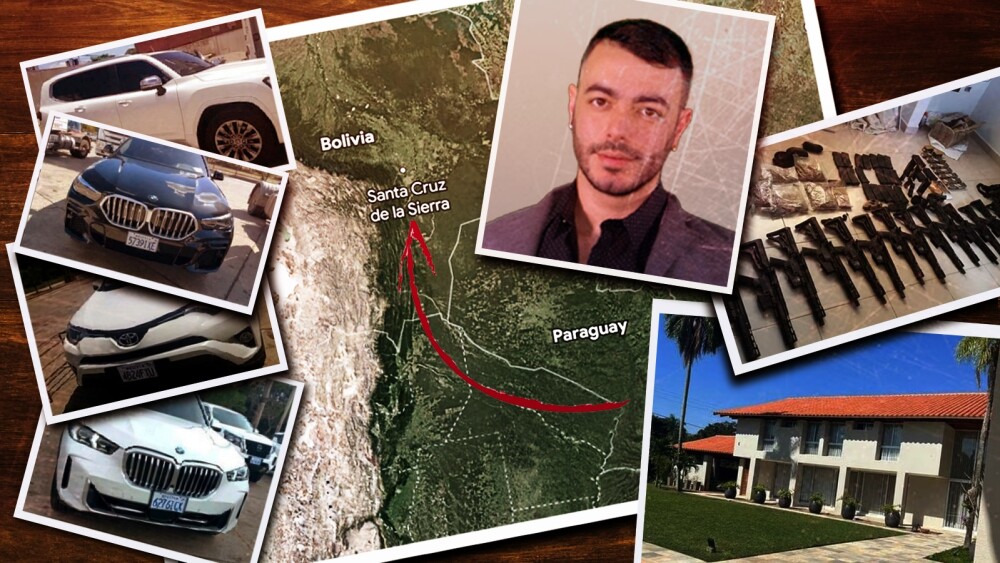
“The Broad Front Listens to You”
A year after their defeat to Lacalle Pou, Uruguay’s left-wing party, the Broad Front (Frente Amplio – FA), held their “Internal Congress of Self-Criticism” at the end of 2021. This is the highest decision-making body of their internal organization, composed of a thousand grassroots activists.
After the congress, FA members toured the country to ask various social and civil organizations about the failures of their last government and what proposals they had for the future. This campaign was called “The Broad Front Listens to You.” Using all the feedback gathered, the party congress debated, reached consensus, and approved a new political proposal. Today, this forms the basis of Yamandú Orsi’s 2025-2030 government program, with 48 key points.
Pablo Álvarez, the FA’s head of international relations, explains that “the left in Uruguay has a defining characteristic: its strong internal democracy. Over time, the FA has prioritized its program and unity.”
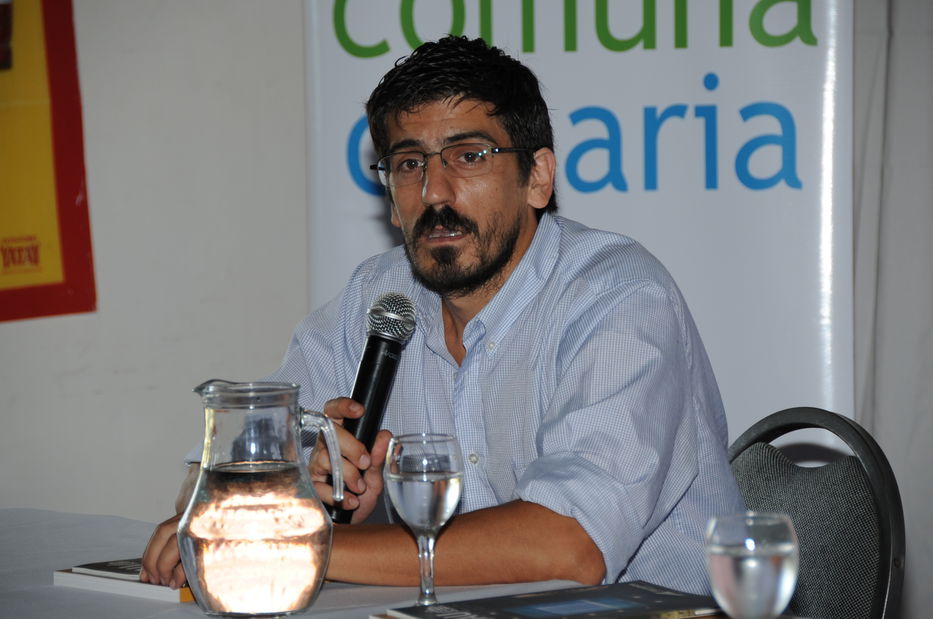
After the electoral defeat in 2019, “an internal review began, which led to a change in leadership, and with the vote of its members, the FA’s President was elected.” In the congress, “the FA recognized that it had weakened its connection with its social bases, its strategic allies within the popular movement. These include unions, social and territorial movements, cooperatives, and students,” Álvarez notes.
A similar challenge was faced by the then-government: “It was clear that the FA couldn’t resolve the issue of security,” he adds. “But since there is a congress that concludes with a document, that helps settle the discussion for the future.”
With that consensus, and the local, territorial structure, the “Broad Front Listens to You” campaign was launched nationwide to enable political discussion with any organization willing to engage, even those not favorably inclined to the left, such as the Association of Cattle Producers.
In addition, the FA used a direct democracy mechanism by collecting signatures to challenge a sweeping law presented by Lacalle Pou, which aimed to reform 20 different areas, called the “Urgent Consideration” law. While the law was passed, the FA managed to gather nearly 40% of the electorate’s signatures, helping the party reconnect with voters and demonstrate its capacity to mobilize against the government.
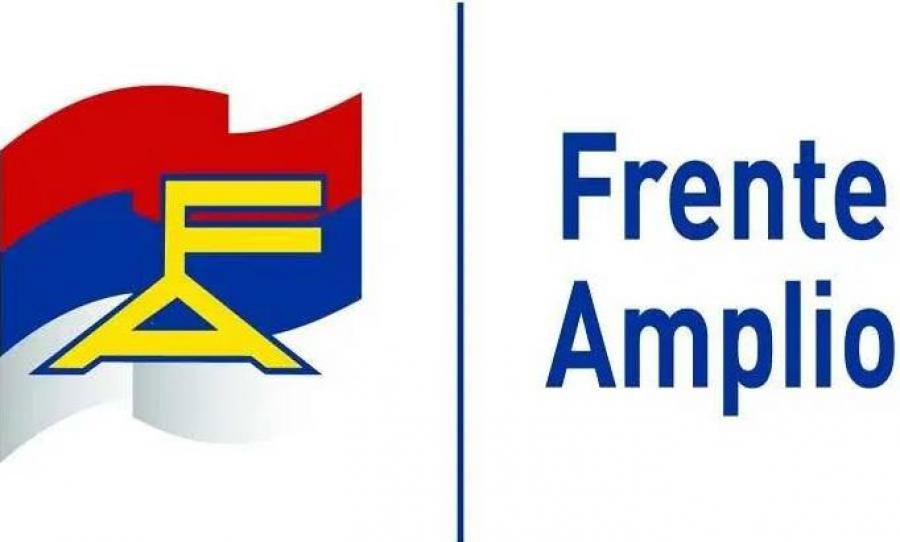
Finally, the FA voted on the political program that now forms the core of Yamandú Orsi’s electoral platform. The program has a productive focus, with key points including: “sustainable development and the promotion of value chains based on natural resources; a new ‘multimodal’ transportation system; infrastructure and logistics services; tourism conceived not only as an economic but also as a cultural activity; job creation; fair income distribution; education and healthcare as human rights; gender equality and social security; urgent action to tackle child poverty; security based on social coexistence; the right to housing; a sovereign Uruguay integrated into the region and the world; and building a 21st-century democracy.”
Hope and determination run strong among FA supporters. “In a future government, we aim to reduce social inequality, focus on education with public policies that reflect the country’s and workers’ interests. We need a strong housing policy, with a gender perspective, as it is a national emergency. We must inject investment into the productive and industrial sectors to minimize the social gap that divides the country today,” says Verónica González, a grassroots FA activist.
The Broad Front also internally decided that whoever won the Mandatory Primaries would be the presidential candidate, and the runner-up would be the vice-presidential candidate on the ticket. Today, there are Yamandú Orsi and Carolina Cosse, just days after winning the first round of elections and perhaps on the verge of reclaiming the presidency of Uruguay for the left in the runoff.

CovertAction Magazine is made possible by subscriptions, orders and donations from readers like you.
Blow the Whistle on U.S. Imperialism
Click the whistle and donate
When you donate to CovertAction Magazine, you are supporting investigative journalism. Your contributions go directly to supporting the development, production, editing, and dissemination of the Magazine.
CovertAction Magazine does not receive corporate or government sponsorship. Yet, we hold a steadfast commitment to providing compensation for writers, editorial and technical support. Your support helps facilitate this compensation as well as increase the caliber of this work.
Please make a donation by clicking on the donate logo above and enter the amount and your credit or debit card information.
CovertAction Institute, Inc. (CAI) is a 501(c)(3) non-profit organization and your gift is tax-deductible for federal income purposes. CAI’s tax-exempt ID number is 87-2461683.
We sincerely thank you for your support.
Disclaimer: The contents of this article are the sole responsibility of the author(s). CovertAction Institute, Inc. (CAI), including its Board of Directors (BD), Editorial Board (EB), Advisory Board (AB), staff, volunteers and its projects (including CovertAction Magazine) are not responsible for any inaccurate or incorrect statement in this article. This article also does not necessarily represent the views the BD, the EB, the AB, staff, volunteers, or any members of its projects.
Differing viewpoints: CAM publishes articles with differing viewpoints in an effort to nurture vibrant debate and thoughtful critical analysis. Feel free to comment on the articles in the comment section and/or send your letters to the Editors, which we will publish in the Letters column.
Copyrighted Material: This web site may contain copyrighted material the use of which has not always been specifically authorized by the copyright owner. As a not-for-profit charitable organization incorporated in the State of New York, we are making such material available in an effort to advance the understanding of humanity’s problems and hopefully to help find solutions for those problems. We believe this constitutes a ‘fair use’ of any such copyrighted material as provided for in section 107 of the US Copyright Law. You can read more about ‘fair use’ and US Copyright Law at the Legal Information Institute of Cornell Law School.
Republishing: CovertAction Magazine (CAM) grants permission to cross-post CAM articles on not-for-profit community internet sites as long as the source is acknowledged together with a hyperlink to the original CovertAction Magazine article. Also, kindly let us know at info@CovertActionMagazine.com. For publication of CAM articles in print or other forms including commercial internet sites, contact: info@CovertActionMagazine.com.
By using this site, you agree to these terms above.
About the Author

Hernán Viudes is an independent journalist and a graduate from The Faculty of Social Sciences at the University of Buenos Aires. He lives in Argentina and enjoys music, culture and football.
Hernán can be reached at hernanviudes@gmail.com.


